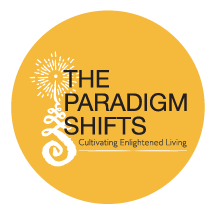Probably the single most damaging undertaking is the practice of judging ourselves. We judge ourselves, we project how others might judge us as well we judge others in relation to our own self-judgments. You can imagine how much energy this takes moving throughout the day.
In my previous writing I shared how you have set intentions about how your day will unfold before you’ve opened your eyes. That’s because you have set judgments about yourself, life, jobs, money … you’ve set judgments about everything and anything. These judgments take the form of assessments, assumptions, expectations, beliefs and interpretations, and before your feet hit the floor you are operating based on what you’ve already decided will be happening for the rest of the day and how that influences the rest of your life.
In your work environment, suspending judgments begins by flexing muscles that cultivate conscious choice-making regarding who you be and how you be in whatever role you play.
A client of mine, Chuck, works in the marketing department of a Fortune 100 company. At 47 years of age, he’s at a point in his career where he is rethinking what it is he is wanting to do for the next 20 years. Should he stay in corporate work and move up into a director position; leave Los Angeles and move back East to be closer to his aging parents – he carries a worry that if he doesn’t move back now he might regret it in the future; or should he go into a field that he is passionate about. He wanted a session with me in hopes that I could help him figure it out.
Chuck does a good deal of comparing “ how he measures up to others around him. He begins to think he should be more like Candice who is strategic, smart, innovative and develops relationships effortlessly. He begins to slump in his chair as he describes Candice’s attributes. In many ways, Chuck is very accomplished and has had an exceptional life; however he continually carries an extraordinary list around in his head of what he should be and how he should be. He has little idea what he really wants for himself in relation to his career because every want is followed by a "Yes, but, I should be …"
Within our session, Chuck began to observe the degree to which he automatically assesses his actions by projecting an assumed reaction from his colleagues. He doesn’t really know what their judgments are, but they influence him none-the-less. He’s judging himself based on some preconceived interpretation about how he thinks he measures up or should measure up. Again, this is exhausting. And, Chuck is not alone. Millions of us are continually assessing and judging ourselves and others and we have little idea that we are doing it.
Bringing shifts and changes into business begins with you. It starts with you cultivating awareness about how you be who you be and by noticing your judgments about yourself and those with whom you share your day, be it your boss, direct reports, customers and clients. It begins with acknowledging this automatic response and then getting curious about where those judgments and interpretations come from. That curiosity will begin to allow you to expand your awareness and wonder how you came to choose what has become so automatic.
What’s the Alternative to Judging?
We will always judge, compare, assess and interpret. These are essential and valuable tools in distinguishing and discerning what works for us and what doesn’t work for us. However, because they are used primarily unconsciously they create more harm than healing. We don’t have to stop judging, but it may be helpful to suspend it long enough to notice the value that judging brings.
If you are wanting to bring change into the workplace, or if you just want to cultivate awareness in yourself, what is it that you want to practice in relation to judging, expecting, interpreting and assuming?
Notice when you judge something as right, wrong, good or bad; notice where something or someone is too slow, too fast, not enough or too much and needs to change. This also goes for noting these thoughts about you. The object of this practice is just to notice. You’ll notice too that you’ll begin to judge yourself and what you notice, saying "yes, but, I am right, or they are wrong." What’s the point?
What does judging and assessing as a practice do for you? How does this empower you? Does it allow you to create change in relation to yourself and your environment? Does it allow you to feel righteous and better than, and if so, how does this impact on the reality you are wanting to create for yourself?
Coming back to Chuck for a moment: Chuck recognized that he was afraid of being judged and through his continuous judgment of his work environment he always played it safe, staying within what he assessed as appropriate. And up until our session he hadn’t realized that this practice of judging and assessing is what keeps him from getting promoted to a more senior position, where he would have to lead in ways that would be innovated and may be perceived as risky. He is now at a choice-point where he can choose with awareness, what he wants and what he is willing to practice to support that outcome.
The automatic thinking that we do always consists of judgments. Just bringing awareness to our judgments allows us to be curious about just how true they really are. This allows us to choose differently if it serves us to do so. Enjoy the exploration!
